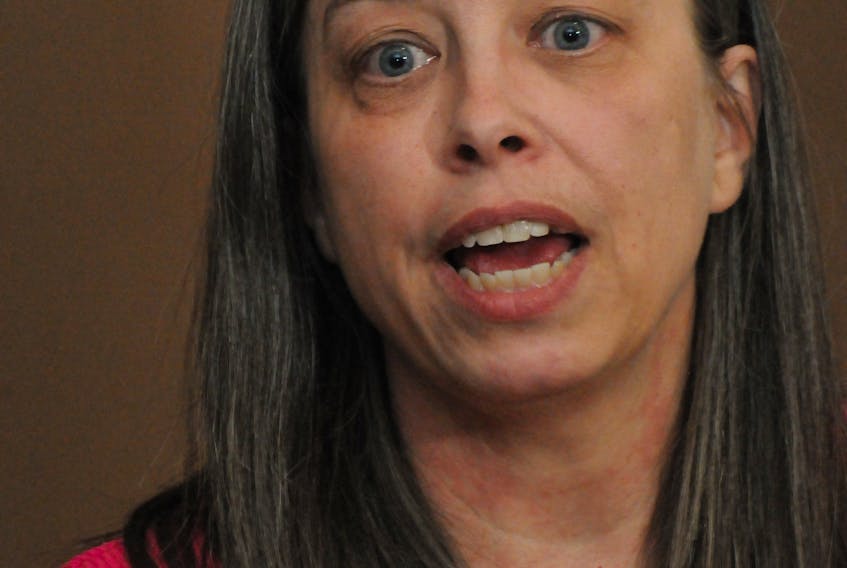ST. JOHN'S, N.L. — Wash your hands, cough and sneeze into your sleeve, call 811 if you think you’re a carrier and stay away from cruise ships.
That was the thrust of a media availability on COVID-19 Wednesday called by Newfoundland and Labrador’s chief medical officer.
In her remarks, Dr. Janice Fitzgerald began by stating there are still no known cases of COVID-19 in the province.
But she also confirmed a handful of local government employees may have come in contact with the novel coronavirus that’s sweeping the globe.
Testing is still going on, and she said it would be naïve to think it’s not coming.
“We do anticipate we will have cases here,” she told reporters.
On March 2 and 3, eight employees with the Department of Natural Resources attended a conference in Toronto that was also attended by an Ontario resident later confirmed to have COVID-19.
Newfoundland health officials were informed Wednesday and those individuals are in self-isolation.
Of those eight employees, some have developed viral symptoms, Fitzgerald said.
“You have to remember there’s lots of flus and colds that are on the go," she said. “We’ve had lots of people symptomatic who’ve been tested and who travelled, and they’ve been found negative. So we have to remember that.”
Fitzgerald could not confirm whether there may be others from this province who attended the Prospectors and Developers Association of Canada conference on March 3. She recommended anyone who may be at risk or who experiences symptoms call the province’s health line, 811.
Symptoms include fever, coughing and difficulty breathing.
To date, 44 tests have been done in the province. All tests are sent to the National Microbiology Laboratory in Winnipeg for confirmation. So far, 22 of those tests have come back. All were negative.
Asked whether there are any plans for a central assessment facility in the province, Fitzgerald said discussions are still taking place.
“We anticipate that that will be the way we will be going,” she said.
Earlier Wednesday, the World Health Organization officially declared COVID-19 a pandemic.
The term signifies a much wider global spread of a disease than an epidemic.
Fitzgerald said the change in status does not affect the province’s approach.
“We need to continue doing what we have been doing, and that’s detect cases, contact, trace, isolate, test and treat people.”
She said local health authorities won’t be taken off guard by COVID-19 because they’ve been gathering information from WHO and other sources.
“It is a new disease, but we certainly have learned a lot from what has happened in other areas of the world and we’ll be applying those techniques as we go forward.”
Given the global demand, Fitzgerald said local authorities are taking steps to ensure they have enough personal protective equipment (PPE) such as masks and gloves for health workers.
“We’ve certainly been engaging with all of our partners across the country … to ensure we have an adequate supply of PPEs.”
As for travel advice, Fitzgerald suggested those planning trips should check with Health Canada's online travel bulletins.
"People need to be aware that if they travel and become ill, they may be quarantined in another country or they may be asked to self-isolate upon their return."
Cruise ships? Not advisable, she says — experience has shown infections spread quickly in close quarters.
Fitzgerald said she plans to offer regular public updates on the disease.
“We will have to adapt our response as time goes on, as we learn more about it and as we see how it spreads.”
Peter Jackson is a Local Journalism Initiative Reporter covering health care for The Telegram.









